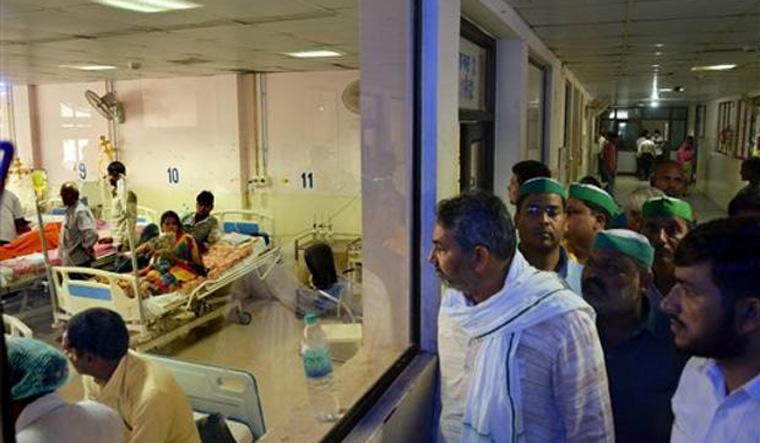The Delhi government proposed a profit margin on drugs and consumables at 50 per cent on the purchase price and for implants at 35 per cent of the purchase price and various other policies in its latest draft advisory earlier this week. A summary of major provisions can be looked up here.
Currently, the advisory will be kept in the public domain for 30 days after which the government plans to make it mandatory. Apart from the legal challenges that it may face, the advisory may prompt international consequences as well, especially from the US to which India exports drugs worth USD 16.5 billion annually.
India is at a stage right now where it is aiming to completely liberalise the pharmaceutical sector. With 100 per cent FDI allowance in Greenfield projects, the market is already a fishing ground for foreign companies. However, since February last year, when the NPPA ordered to cap the prices of coronary stents, pharmaceutical relations with US started to strain. This was because the decision had hit several US based companies such as Abbott Laboratories, Medtronics, Meril Lifesciences, Boston Scientific Corp. which dominate the Indian stent market controlling three fifth of the share.
In fact, the United States Trade Representative (USTR), last year, had written to the Prime Minister Narendra Modi's office and Trade Minister Suresh Prabhu urging them “to not expand price controls to additional medical devices”, according to a copy of the letter seen by Reuters.
India’s official position remained that it would not abstain from capping prices for more medical devices, regardless of pressure to rethink its price controls on heart stents and knee implants which have not been favourable for some US firms.
Two months back, in its annual National Trade Estimate Report on Foreign Trade Barriers (NTE), the US government publicly commented on the issue for the first time. They were categorical that the NPPA order has caused losses to medical companies as a result of their highly advanced products being sold at substandard prices.
What these companies demanded was either an allowance of immediate withdrawal of their products from the Indian market or a higher price category which would not be subjected price regulations. In April last year, the NPPA had rejected applications by multinational firms Abbott and Medtronic to withdraw their advanced coronary stents from India while asking them to maintain supplies of the products. This is because according to Section 21 of India’s Drug Price Control Order, manufacturers are not allowed to suddenly withdraw their products from the market. This is to avert any public health crisis, or shortage in medicines.
Adding to that, their claims of superiority have not been borne out by evidence or data. As The Wire reported, "leaders in the medical device industry like Abbott and Boston Scientific were asked by the Indian government to submit scientific statistics to back up claims of “superiority” of their products, and thus a higher price". Despite repeated invites, they did not submit any data.
The US’ response to the tussle was that India found itself under review for its GSP status as announced by USTR in April. This was owing to petitions signed by AdvaMed, a medical device industry body of multinational firms in October last year. The body appealed the USTR to withdraw GSP trade benefits that India gets for imports into the US. A copy of this petition has been reviewed by The Wire. It cites the cause of this move as India’s “failure to provide equitable and reasonable access to its market for medical devices.” US’ Generalized System of Preferences (GSP) basically enables selected developing countries to export their products into US duty-free.
The stakes will be high considering India is the most commercially significant beneficiary of the preference scheme, having exported USD 5.6 billion worth of GSP-eligible goods to the US in 2017, roughly one-quarter of the total value of products that the US imports under the programme. If the US further presses ease on price controls, India would have to take a firm stance.


